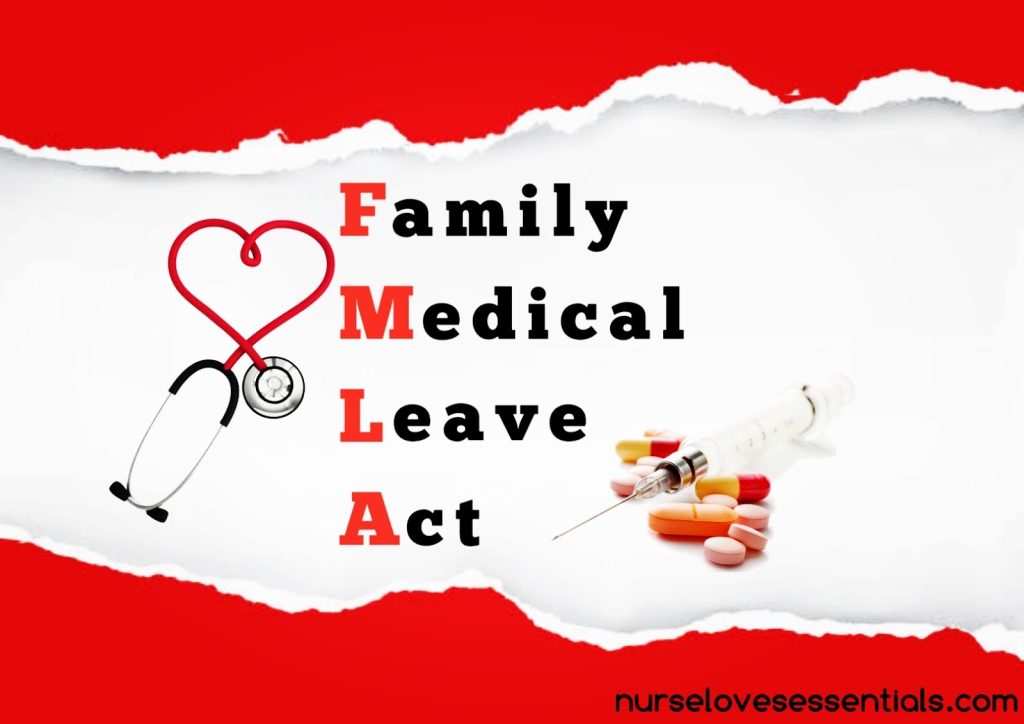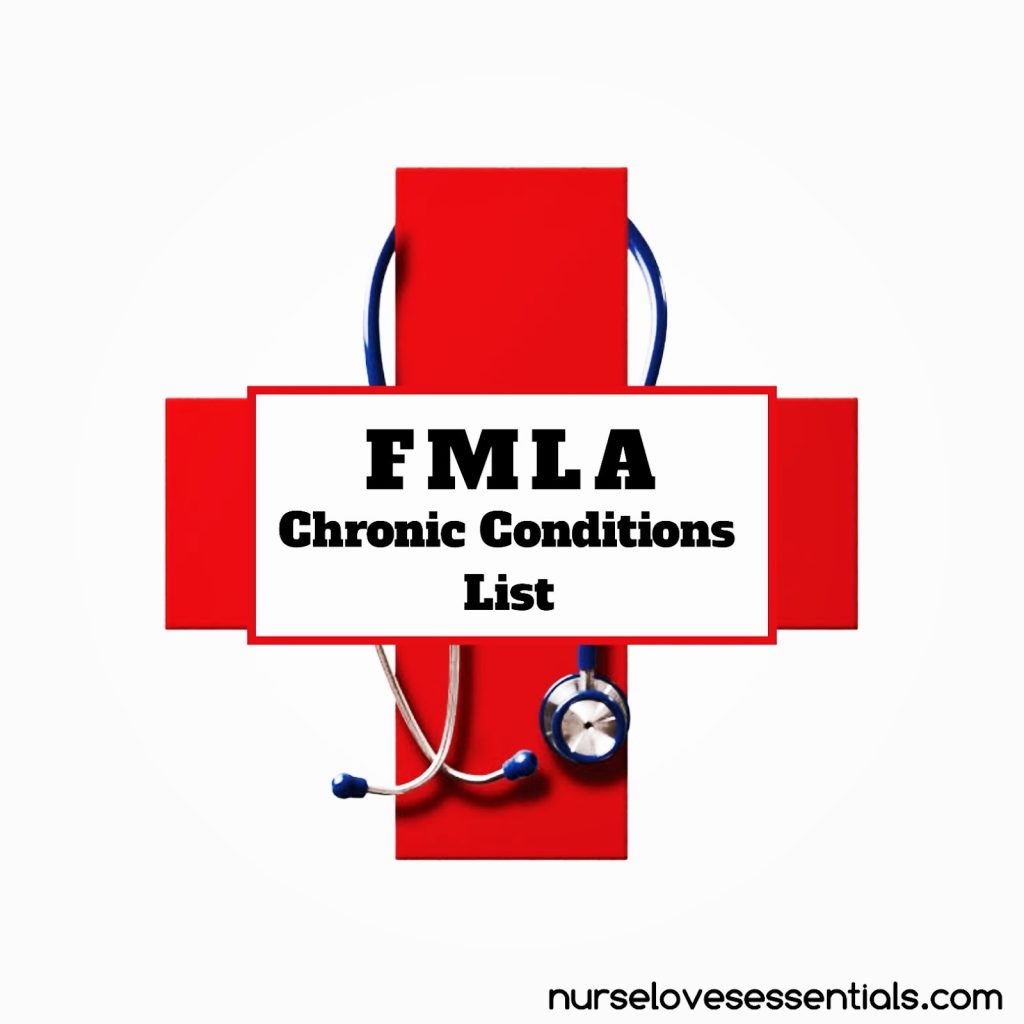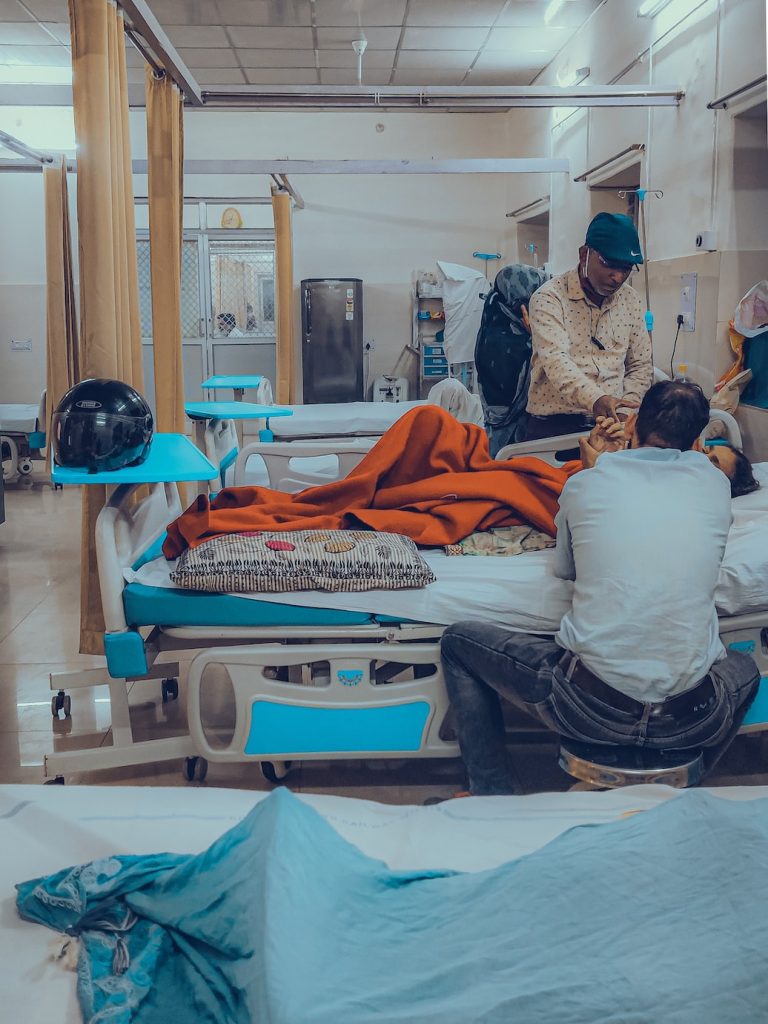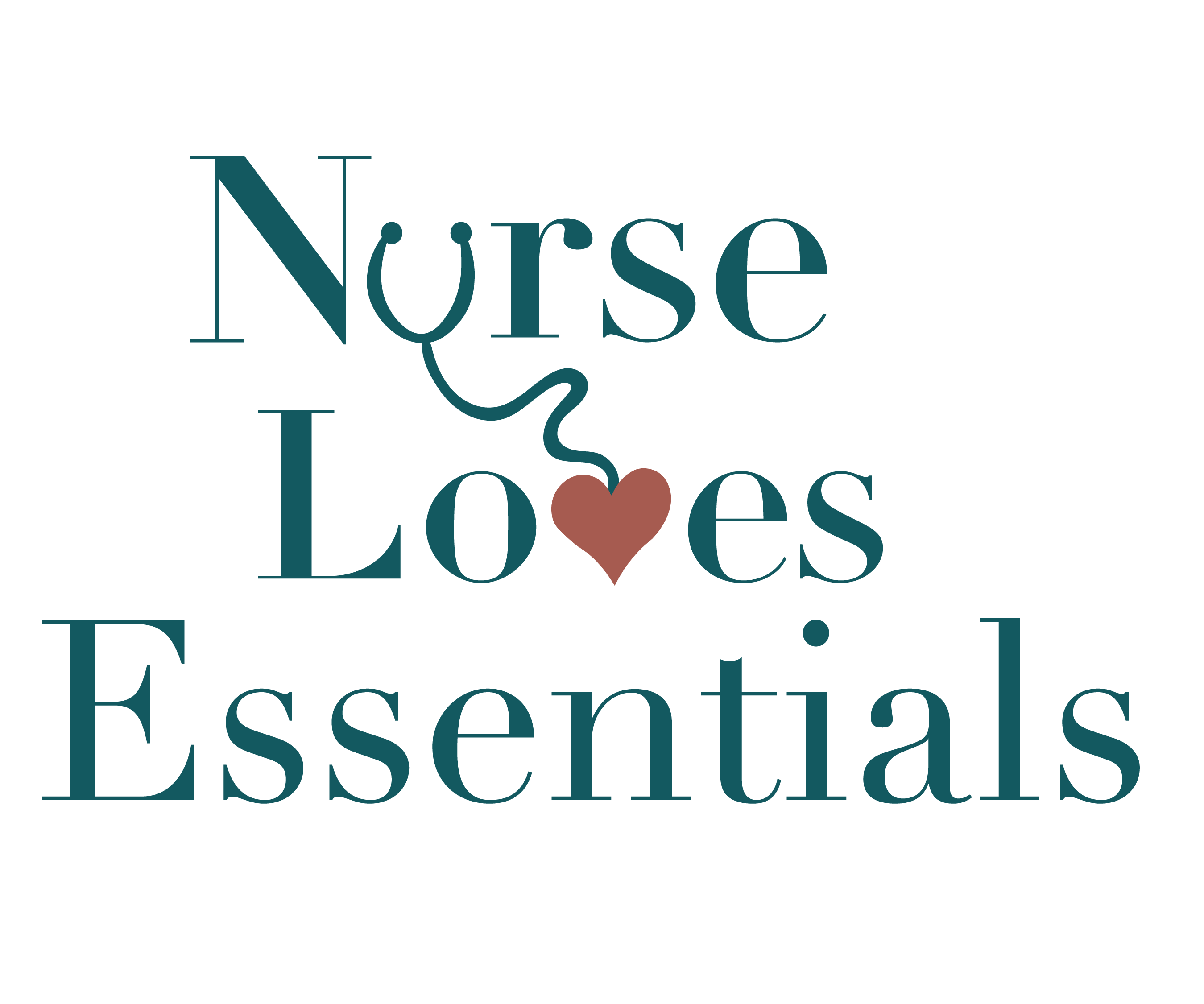
Many people dealing with unpredictable chronic illnesses like fibromyalgia, arthritis, chronic fatigue syndrome, and endometriosis are often concerned with having to take leave from work.
No one wants to lose their job because they have to meet a doctor’s appointment or because they got sick.
Thankfully, most chronic illnesses are on the FMLA chronic conditions list, where employees in certain establishments can take unpaid leaves to attend to their health. This Family and Medical Leave Act (FMLA) also covers employees who have sick family members.
The FMLA chronic conditions list showcases a series of severe health conditions covered by this act.
RELATED POSTS:

What is FMLA?
The Family and Medical Leave Act (FMLA) is a federal labor law made in 1993 that provides eligible employees up to twelve (12) workweeks of unpaid leave in a year without their jobs being threatened while maintaining group health benefits during the leave period. If you qualify for the FMLA leave, you can take up to 3 months off without fearing losing your job.
The FMLA covers employees that fit its criteria and includes employees who have to take time off to care for their spouse, kids, or parents who fit the FMLA criteria and are included in the FMLA chronic conditions list.
For military family members eligible for FMLA leave, you can take up to 26 weeks to care for a covered service member with a severe chronic health condition.
Types of businesses that FMLA applies to
The Family and Medical Leave Act doesn’t apply to all employers. The FMLA applies to
- All public agencies, including all local, state, and federal employers.
- Private sector employers with over 50 stable employees for at least 20 workweeks in the previous or current year.
These include private sector companies with joint employers.
FMLA serious health condition definition
The FMLA defines serious health conditions as any injury, ailment, disorder, or physical or mental conditions that may require:
- Inpatient care.
These conditions require an overnight stay at the hospital or any care facility. An employee can take an FMLA leave for the period spent in a care facility, the entire period of incapacity after inpatient care, and subsequent treatment connected with the inpatient care.
- Continuing treatment by a health care provider.
This covers serious health conditions that require a certain period of incapacity, which involves:
- A recovery period of more than three consecutive calendar days
- Two or more consecutive treatments under the direct supervision of a healthcare provider or certain healthcare services under direct orders of a healthcare provider
- A course of prescription medications or therapy involving special equipment and under the supervision of a healthcare provider
- Conditions that can result in episodic flares like epilepsy
Note: Continuing treatment by a healthcare provider does not cover the use of OTCs that can be taken without a visit or under the supervision of a healthcare provider.
The aim of the ‘continuing treatment’ is to cover health conditions whose treatment requires direct supervision of a healthcare provider and might extend over some time.
FMLA chronic conditions list
The FMLA chronic serious health conditions are conditions where the patient isn’t constantly incapacitated or needs to be admitted but might require occasional days off work.
Any chronic conditions that:
- the employee has to periodically visit the hospital (at least two visits a year)
- is a prolonged condition
- the condition can cause episodic incapacities like seizures or epilepsy
- results in permanent or long-term incapacity
- requires multiple treatments
Some of the diseases that are on the FMLA chronic conditions list are as follows:
- Alzheimer’s disease
- Pregnancy
- Diabetes
- Epilepsy
- Asthma
- Cancer
- Advanced Amyotrophic Lateral Sclerosis (ALS)
- Restorative surgery
- Emphysema
- Organ donation
- Severe injuries
- Chronic back aches
- Arthritis
- Nervous disorders
- Pneumonia
- Severe depression
- Childbirth
- Multiple sclerosis
- Covid-19
Some chronic diseases are not on the list here because it is impossible to list them all. However, any medical condition that meets the definition of serious health conditions by the FMLA is covered.
Health conditions not covered by FMLA
Some health conditions are not covered on the FMLA chronic conditions list, including:
- Colds and flu
- Headaches
- Upset stomach
- Earaches
- Cosmetic treatments
- Toothaches
- Minor ulcers
However, suppose complications arise in any of these health conditions listed and result in incapacitation for more than three consecutive days, inpatient care, or continuing treatment. Any absence will be protected by the Family and Medical Leave Act (FMLA).
Technically, any health condition that does not meet the FMLA criteria is not considered a serious health condition.
Are you eligible for FMLA Leave?
To be eligible for FMLA leave, you must meet four conditions:
- You must work for a covered employer.
- You must work at a company with 50 or more employees within a 75-mile radius.
- You must have worked for your current company for 12 months, but these months don’t have to be consecutive.
- You must have worked at least 1,250 hours, which is a little over 24 hours a week before your leave.
When you have met all these criteria, i.e., your conditions fit the FMLA coverage, and you have fulfilled the three conditions provided, if your employer still denies your request for a leave, you are free to contact an employment attorney.
You can also contact an employment attorney when:
- Your employer denies you due benefits because you took an FMLA-approved leave.
- Your employer fires you from your job before or after an FMLA leave.
- Your employer refuses to pay you.
- You are unsure of your FMLA coverage.
- How to apply for FMLA leave
To apply for an FMLA leave, you first file a request for an FMLA leave with your employer, to which they are required to reply within five business days.
Usually, employers respond by providing their employees with the Notice of Eligibility and Rights & Responsibilities (Form WH-381) and an FMLA medical certification form.
Your healthcare provider will complete the FMLA medical certification form that confirms your health condition or that of your family member.
Within 15 calendar days of receiving this certification form from your healthcare provider, you must pass it to your employer.
Your employer should approve or deny your FMLA leave request within five business days of receiving the completed medical certification form.
Depending on your employer, medical certification can also be subject to second and third opinions.
When applying for an FMLA leave, your employer might request an advanced leave notice.
When the leave is foreseeable, you must submit an advance notice 30 days before the leave date. Some employers can cancel your request for leave if you do not give them advance notice.
Also, when resuming work from an FMLA leave, your employee can request a fitness for duty report. Failure to do this can lead to the termination of your appointment.

These conditions listed in the FMLA chronic conditions list are serious enough to be excused.
However, you can contact any employment lawyers near you if you receive backlash from going on unscheduled leaves, even when you fall under the approved category.
It means your employer cannot ‘punish’ you in any form for going on any FMLA-approved leave either as a support for your family or as a sick person.
Have you read about the FMLA chronic conditions list before? Which listed chronic illness surprised you?
READ ALSO: How to best advocate for yourself at work with Chronic Illness




0 Comments